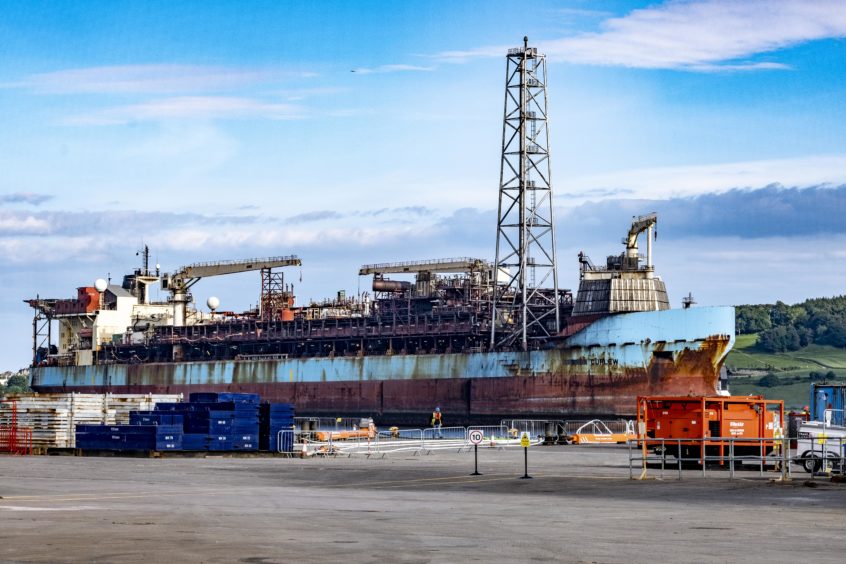
Dundee will become the go-to hub for decommissioning work in the UK according to the man who has spearheaded the city’s move into the sector.
Callum Falconer, the head of Dundeecom, is convinced the city is well placed in terms of its location and range of services to capitalise on the expected rise in North Sea assets reaching their end of life.
A year ago, the Forth and Tay Decommissioning Alliance was formed by key decom companies based at the Port of Dundee and port owner Forth Ports in a bid to bring major projects to Dundee.
Mr Falconer said that even in uncertain times the group needs to continue to look forward and create the foundations for delivering industrial jobs from emerging industries.
“Each of the Alliance members has been very active in the last 12 month both individually and collectively and have had various successes in their own fields,” he said.
“The key message that we are putting out is that we can offer a complete end to end decommissioning solution.
“We are looking to offer decommissioning safely, with due care of the environment at best value for our customers while also embracing our circular economy vision.”
Decom is one of the key emerging markets Dundee is aiming to develop, along with offshore wind.
The arrival of a metal recycling facility by John Lawrie Metals at the Port of Dundee, as part of a major investment programme at the Port, will enable large structures such as jackets and topsides to be broken down and then shipped directly to smelters.
Mr Falconer said the city’s first major decommissioning project, cleaning hazardous waste from the floating production vessel Curlew, should be considered a major success.
After arriving in Dundee last year the vessel owner confirmed in February that work had been halted.
“Augean NSS was told that initially there was 100 tonnes of hazardous waste to be removed from the vessel,” Mr Falconer said.
Last month when it was announced that work was to stop, the firm had removed more than 1,000 tonnes while expending over 200,000 man-hours on the project.
“The vessel owners decided to change strategy from cleaning in confined spaces to maintain the class of the ship, to clean by breaking up the ship to facilitate a safe and expedient solution, so the vessel will now have to move, as the Port of Dundee doesn’t have a licence to break ships.
“Now that we’ve seen how the Curlew project developed, we realised this was an opportunity missed and we have started talks with Sepa (the Scottish Environment Protection Agency) about the feasibility of obtaining this licence.
“But the message I want to get across is the Curlew was a huge success for the city, with various groups in the Alliance working together and completing the work required.”
Mr Falconer said the Alliance was also continuing to investigate the feasibility of a deep-water port located in the Firth of Forth, which will enable ultra heavy lift vessels to use the Port via this facility.
Recommended for you
